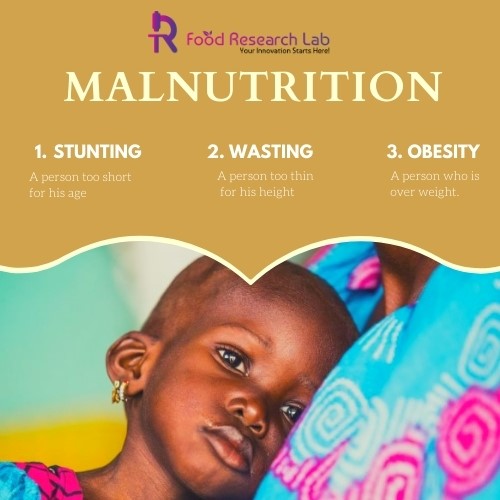
Malnutrition
Malnutrition refers to energy and nutritional shortages, excesses, or imbalances in a person’s diet. Malnutrition refers to three different types of conditions
Undernutrition consists of wasting (low weight-for-height), stunting (low height-for-age), and underweight (low weight-for-age).
Micronutrient malnutrition encompasses micronutrient deficiencies (a lack of essential vitamins and minerals) and micronutrient excess (a surplus of micronutrients).
Obesity, overweight, and noncommunicable illnesses linked to diet (such as heart disease, stroke, diabetes and some cancers).
Who is affected the most?
Malnutrition affects every country on the planet in one way or another. Combating malnutrition in all of its manifestations is one of the world’s most pressing public health issues.
Malnutrition is especially dangerous for women, babies, children, and adolescents. Early nutrition optimization, which includes the 1000 days between conception and a child’s second birthday, offers the most impressive possible start in life, with long-term advantages.
Negative Impact of Malnutrition
Poverty increases the risk of and consequences of malnutrition. Poor people are more susceptible to various kinds of malnutrition. Malnutrition also raises healthcare expenses, lowers productivity, and hinders economic growth, perpetuating a cycle of poverty and illness.
Nutrition Expert Service
It has been well acknowledged that adequate nutrition is essential for optimal individual health and well-being. Food Research Lab is a global Contract R&D Food, Beverages & Nutraceutical Lab providing solutions to Food, Beverages and Nutraceuticals (F, B&N) industries worldwide.
We offer healthy nutrition diet consultation and diet kit formulation services to a chain of restaurants, hospitals /clinics and healthcare centres. Our trained nutritionists and dietitians develop meal plan kits and customized nutritionally balanced, calorie-controlled delicious meals ideal for people with different dietary preferences and needs.






